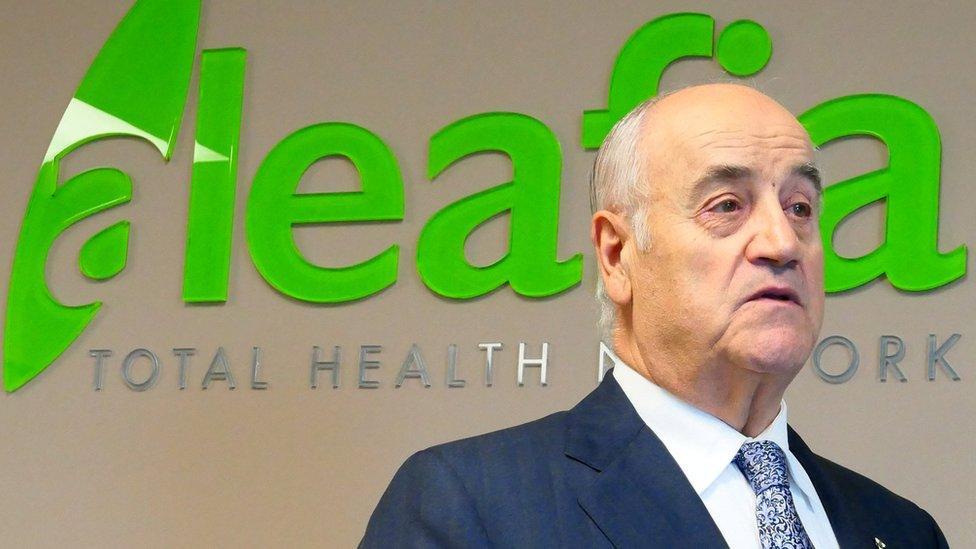Hague's call to legalise cannabis rejected by government
- Published
- comments
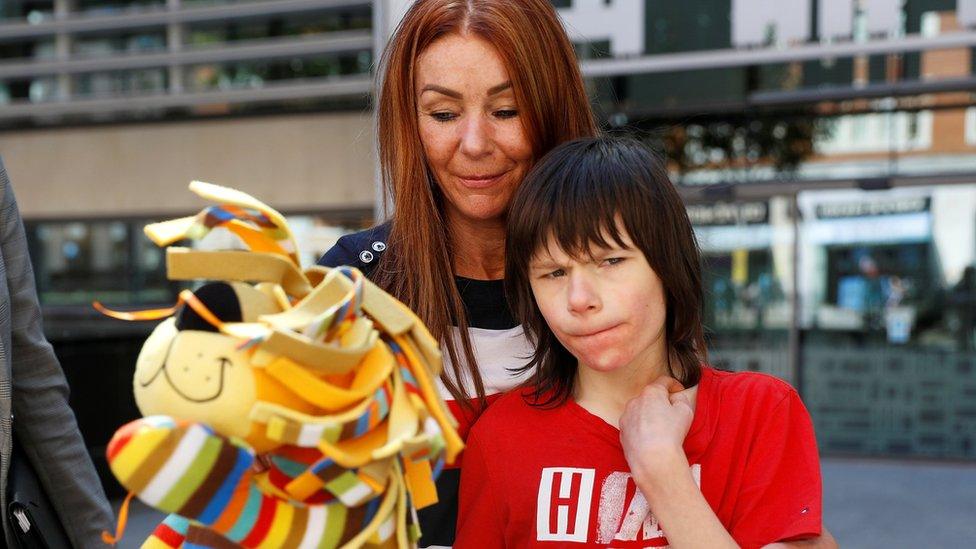
Lord Hague said Billy Caldwell's case was an "illuminating moment"
The government has rejected a call from Lord Hague to consider legalising the recreational use of cannabis.
In an article for the Daily Telegraph,, external the former Tory leader said the war on cannabis had been "irreversibly lost" and a change of policy was needed.
His call was prompted by the case of a boy with epilepsy who was given a special licence to use cannabis oil.
Home Secretary Sajid Javid has told MPs there will be a review of the medical use of cannabis in the UK.
The Home Office has set up an expert panel to review the rules on the therapeutic use of the drug, but a spokesman stressed that the existing laws on the recreational use of cannabis would not be changed.
"Any debate within government about the efficacy and therapeutic use of cannabis-based medicines emphatically does not extend to any review regarding the classification of cannabis and the penalties for the illicit possession, cultivation and trafficking of cannabis will remain the same."
Why is medical cannabis illegal?
Cannabis is not recognised as having any therapeutic value under the law in England and Wales and anyone buying or using it can be arrested or jailed.
One cannabis-based product - Sativex - can be legally prescribed in limited circumstances usually to help alleviate the symptoms of multiple sclerosis and the government is open to further applications.
The parents of children with severe epilepsy are calling for cannabis-derived drugs to be made available to their offspring.
Last week officials at Heathrow Airport confiscated Billy Caldwell's cannabis oil, which the 12-year-old's mother Charlotte had been attempting to bring into the UK from Canada.
The Home Office returned some of the medicine after protests from Ms Caldwell, and assurances from the medical team treating Billy that the treatment was necessary.
Billy was discharged from hospital on Monday, but will continue to be treated with the oil.
Health Secretary Jeremy Hunt said it was obvious the government was not "getting the law on this kind of thing right" and suggested a review would take place "as quickly as possible".
One mother says Theresa May made a promise
Hannah Deacon, whose son suffers from epilepsy, says she was given a promise by Theresa May
What has this got to do with recreational use of cannabis?
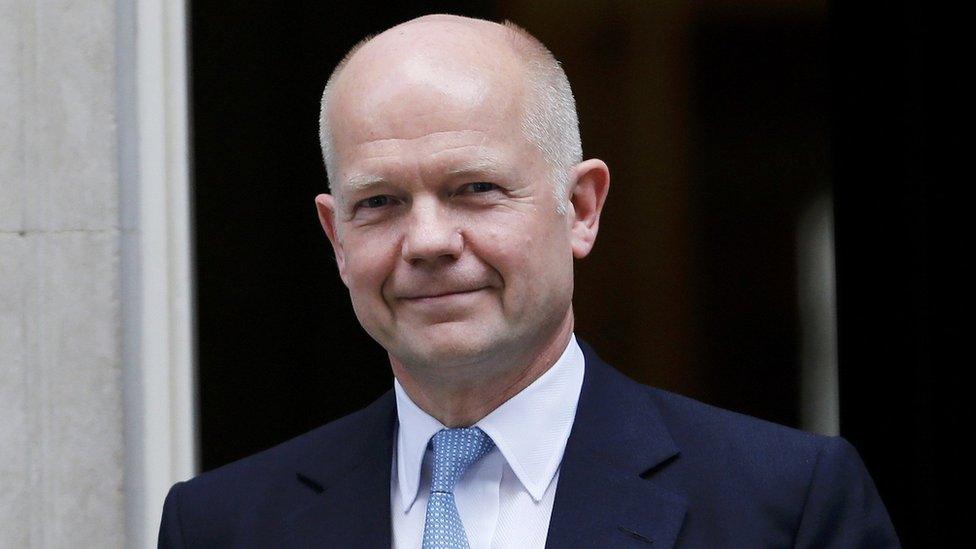
It was "nothing short of deluded" to think cannabis can be driven off the streets, Lord Hague wrote
Lord Hague said the debate about Billy Caldwell was "one of those illuminating moments when a longstanding policy is revealed to be inappropriate, ineffective and utterly out of date".
By returning the medicine to the Caldwell family, the Home Office had "implicitly conceded that the law has become indefensible", he said.
Licensing cannabis for medical use would be a "step forward", he said, but the Conservatives should be as "bold" as Canada where state-regulated recreational consumption was being considered.
Others have said he is in danger of confusing two separate issues.
Will Lord Hague's words have any effect?
Lord Hague is not the first politician to call for the legalisation of cannabis - but he is the most senior Conservative to do so. The party has traditionally taken a hard line on drugs, including when Lord Hague was its leader between 1997 and 2001.
He now says it is "deluded" to think cannabis could be driven off the streets, adding that the "battle is effectively over".
He said the fact that cannabis was both illegal and widely available effectively permitted "the worst of all worlds" to arise: encouraging more potent and dangerous variants of the drug, with users reluctant to seek help.
He said the "only beneficiaries" of the current law were "organised crime gangs".
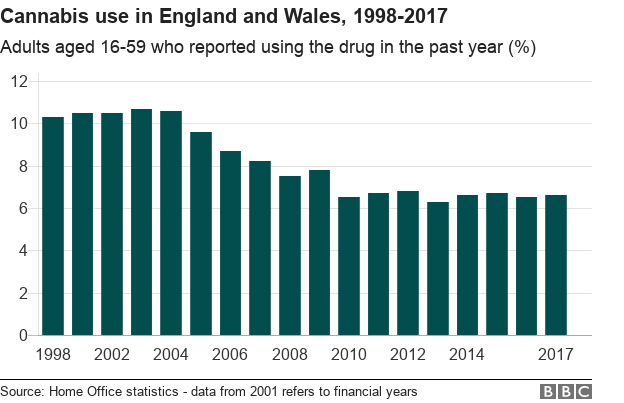
Similar arguments have been made for decades by those campaigning for the liberalisation of drugs laws, with little impact on government.
Many other countries, including much of the US, Germany, Italy and the Netherlands, have legalised the use of medicinal cannabis, but very few have legalised recreational use.
Prime Minister Theresa May remains firmly opposed to legalisation or decriminalisation of the drug because of the harm she says it does to individual users and communities.
Legalisation or decriminalisation?
Legalisation of cannabis could see it being sold in shops or by licensed distributors, in the same way as alcohol or tobacco.
This differs from decriminalisation, under which possession of the drug is no longer a criminal offence, but sales are still prohibited.
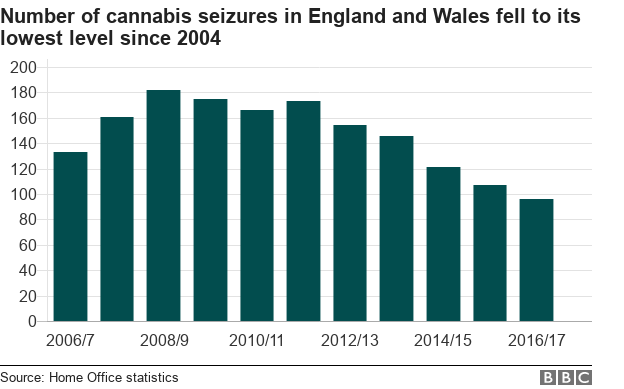
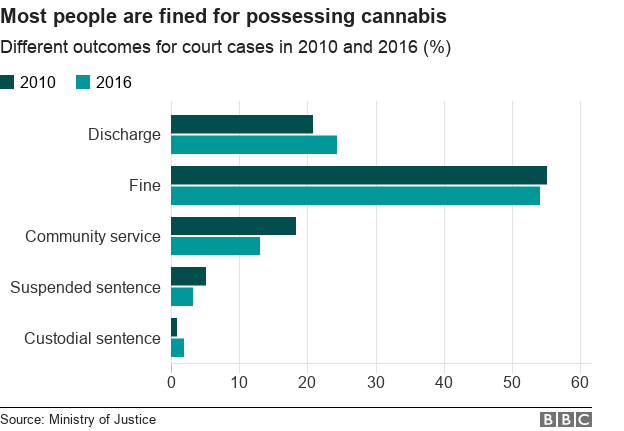
The UK downgraded cannabis to a Class C drug in 2002 - putting it in the same category as steroids - with possession of small quantities no longer an arrestable offence.
But it was moved back up to Class B by then Prime Minister Gordon Brown in 2008, with penalties for possession of up to five years in prison.
Supplying attracts a sentence of up to 14 years imprisonment and an unlimited fine.
According to Home Office statistics, cannabis was the most commonly used drug in the UK in 2016-17, with 6.6% of adults aged 16 to 59 having used it. That's about 2.2 million people.
Who else is in favour of a change in the law?
Lib Dem leader Sir Vince Cable said his party supported the legal sale of cannabis for recreational use provided it was "properly regulated" and sold by "legalised distributors", which he said "would reduce the harm caused by "potent and damaging forms" of the drug.
He claimed legalisation would not lead to greater consumption, telling BBC Radio 4's Today programme: "If it was carefully regulated and heavily taxed there wouldn't be any incentive to use it."
The Green Party is also in favour of legalisation of cannabis, arguing it would "reduce the harm associated with it".
Labour leader Jeremy Corbyn has said he would decriminalise cannabis for medicinal purposes.
But a Labour government would "look at the medical effects on the wider community and on cannabis users" before deciding whether to back legalisation for recreational use, he added.
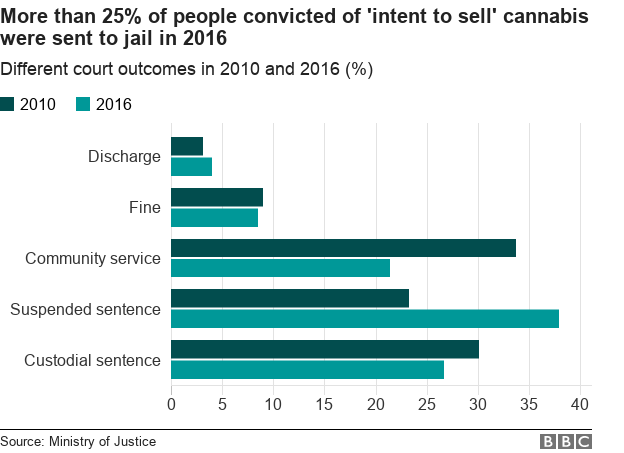
Conservative MP Crispin Blunt, chairman of an all-party Parliamentary Group on drugs reform, said Lord Hague was "absolutely right" and the current laws had failed, adding that selling cannabis legally would generate substantial tax revenues.
The majority of assembly members in Wales, the SNP and all parties in Northern Ireland except the DUP have backed medical legalisation of cannabis.
The Royal College of Nursing also voted overwhelmingly in favour of lobbying the government to make it legal for medical use last month.
Who is against it?
The Royal College of Psychiatrists says legalisation for recreational and medicinal use should be considered as distinct. It says cannabis carries significant mental health risks but it supports the medicinal use of approved cannabis products.
Campaigners against legalisation argue that it would normalise the use of drugs among children and lead to greater addiction and health problems.
Conservative MP Laurence Robertson warned it could lead to cannabis being sold in shops "alongside Mars bars and cans of coke" and that it would not kill off the "illicit" trade in the drug, saying taxing cigarettes had led to a booming black market.
Prime Minister Theresa May last year vowed to continue the "war on drugs," saying "the incredible damage [drugs] can do to families and the individuals concerned".

- Published18 June 2018
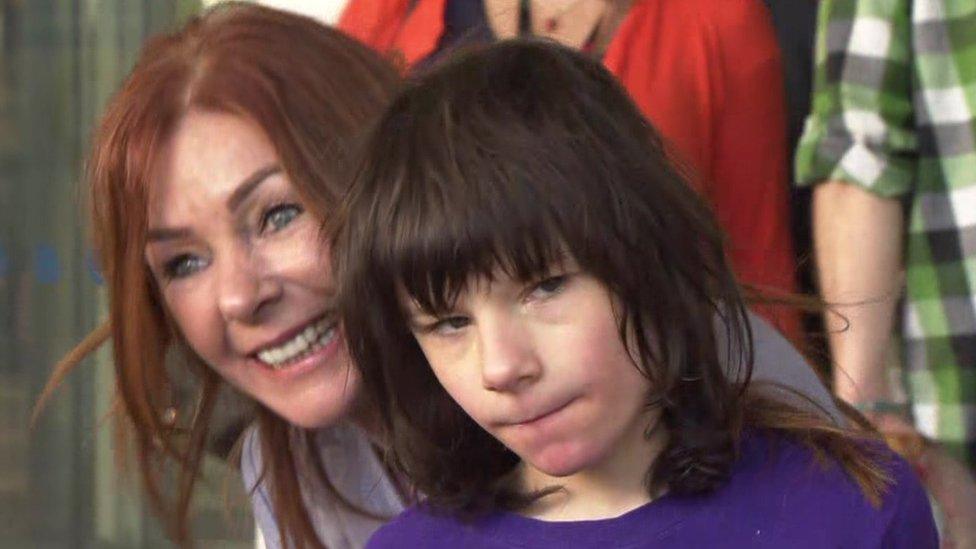
- Published18 June 2018
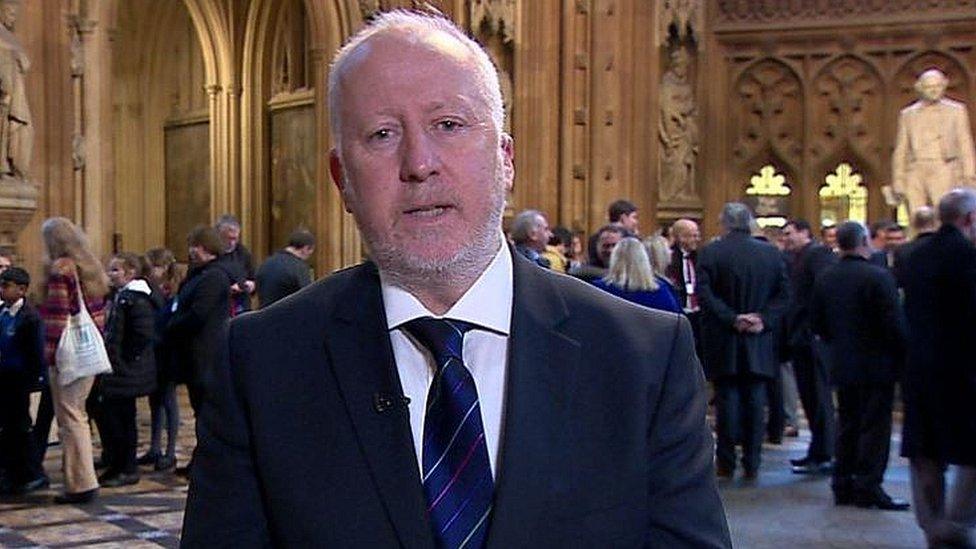
- Published17 June 2018
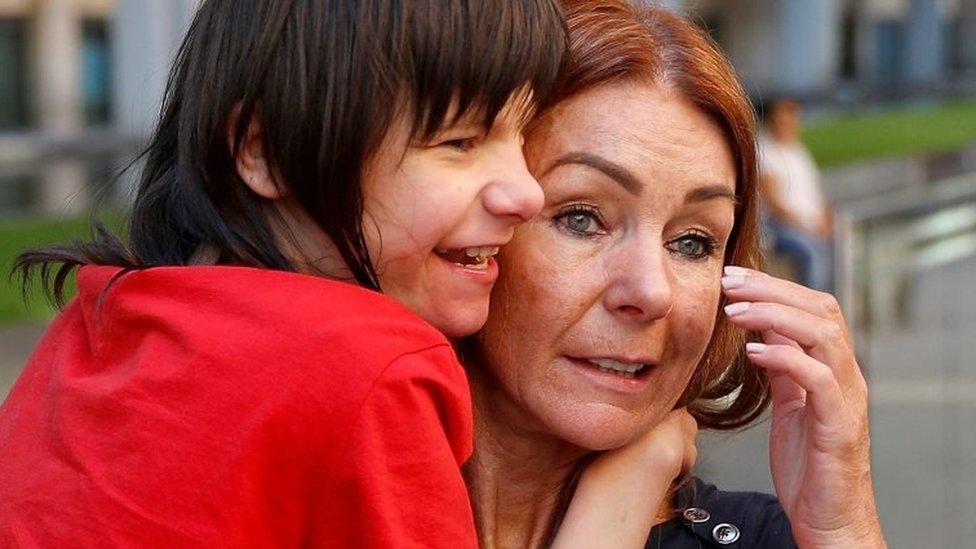
- Published16 June 2018
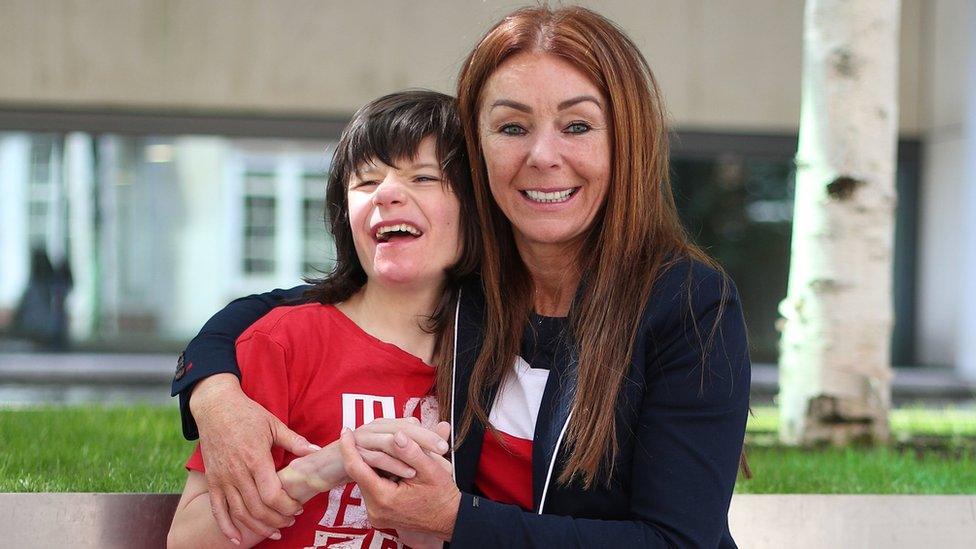
- Published14 June 2018
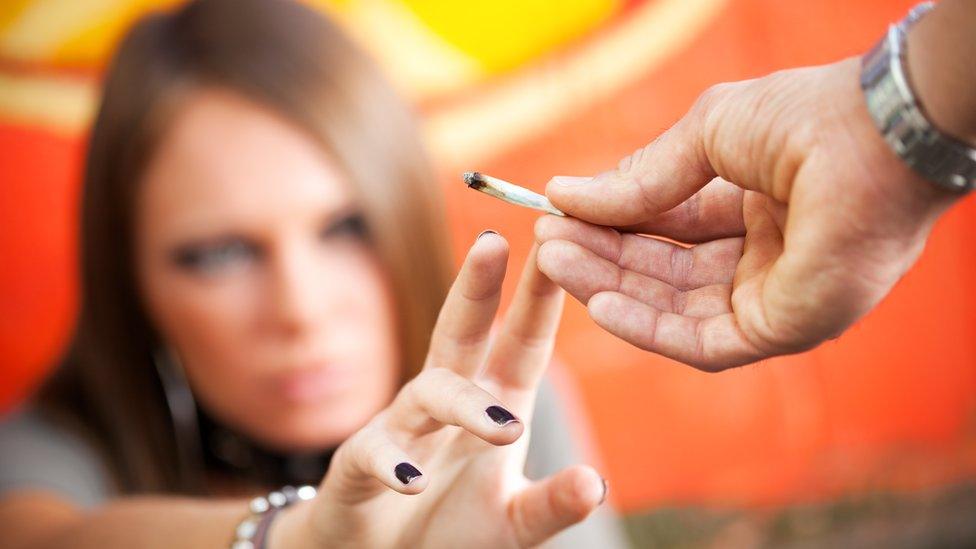
- Published28 February 2018
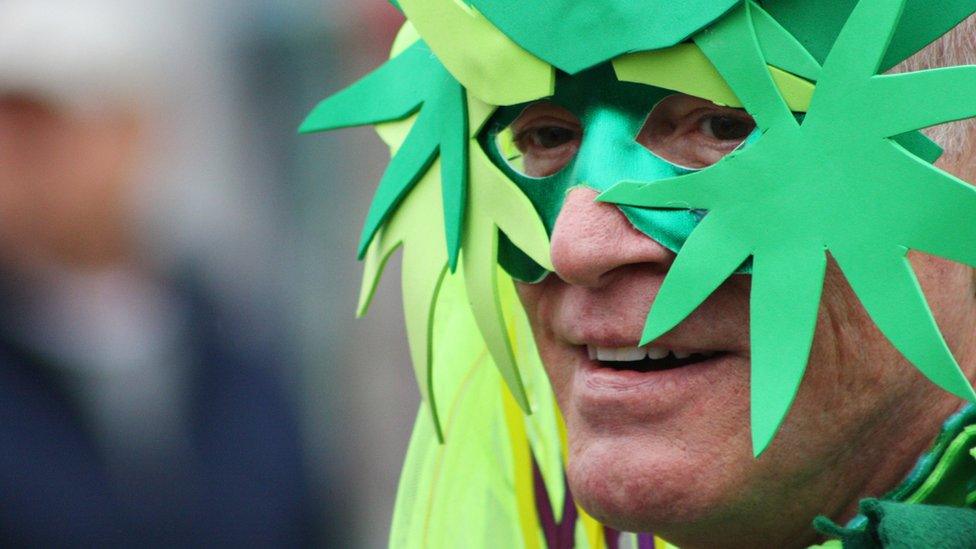
- Published29 December 2017
